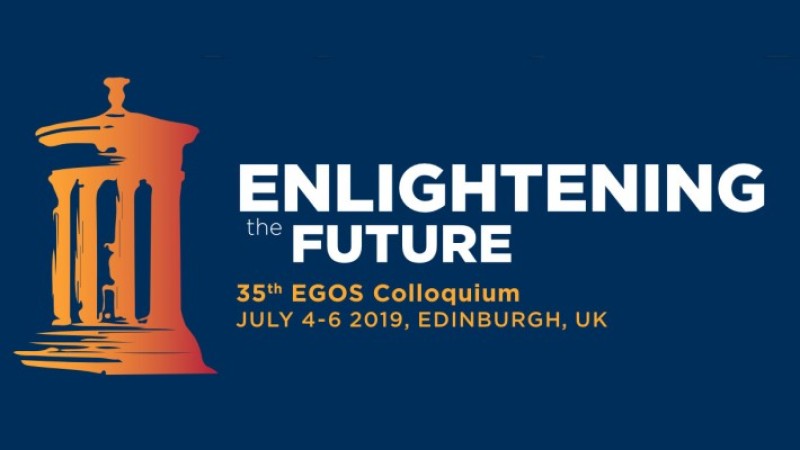Sub-theme 55: Open Organizing for an Open Society? Connecting Research on Organizational Openness
Call for Papers
Discussions around open organizing date back to the 1950s, when organizations were conceptualized as open systems interdependent
with their environments (e.g. Boulding, 1956). However, recent developments have seen openness recast as an organizing principle
in a wide range of domains. Indeed, Tkacz (2012, p. 400) describes contemporary advanced societies as undergoing a “second
coming of openness”. Thus we see the apparent rise of phenomena such as open innovation (Chesbrough, 2006), open strategy
(Hautz et al., 2017), open software development (von Hippel & von Krogh, 2006), open government (Janssen et al., 2012),
open science (Nosek et al., 2015), and open education (Seely et al., 2008).
While there is growing reference
to notions of openness across domains, these are largely disconnected from each other, show few signs of convergence and lack
theoretical reference between domains. This fragmentation is even more marked when considering related notions such as organizational
fluidity (Dobusch & Schoenborn, 2015), liquidity (Kociatkiewicz & Kostera, 2014), boundlessness (Ashkenas et al.,
2002) and partiality (Ahrne & Brunsson, 2011). Alongside these notions, advanced societies appear also to be seeing the
emergence of more open organizational forms such as crowds (Felin et al., 2014), communities (Faraj et al., 2016), ecosystems
(Baldwin, 2012) or meta-organizations (Gulati et al., 2012). A central objective of the proposed sub-theme will be to bring
together discussions of various forms of open organizing in order to explore possible commonalities and significant distinctions,
and to develop means for more connected theorizing across domains and dimensions.
We believe that bringing
together the diverse streams of work on open organizing will advance cumulative knowledge and stimulate new integrative insights.
Because existing theories of organization may be limited in their capacity to explain the relations between the dimensions
of openness (Puranam et al., 2014), we encourage broad and innovative theorizing. At the same time, we look for systematic
comparison across empirical phenomena as well as new studies within individual domains. Some indicative themes include:
Evolution of open organizing: How does an open society affect open organizing? What institutional pressures may threaten open organizing? How does the emergence of open organizing in one domain parallel emergence in other domains?
Processes and mechanisms of open organizing: How is openness coordinated over time and across domains? How do open organizations interact with established institutions in society and the economy? How are openness and closure related over time?
Effects and implications of open organizing: What are the unintended consequences, or even negative effects of open organizing? How does open organizing affect society at large?
Theorizing open organizing: What are the opportunities and limits in existing organization theories with regard to open organizing, especially across domains? What are the theoretical opportunities for building more integrative theorizing on open organizing within open societies?
References
- Ahrne, G., & Brunsson, N. (2011): “Organization outside organizations: The significance of partial organization.” Organization, 18 (1), 83–104.
- Ashkenas, R., Ulrich, D., Jick, T., & Kerr, S. (2002): “The boundaryless organization.” Facilities, 20 (10), 350.
- Baldwin, C.Y. (2012): “Organization Design for Business Ecosystems.” Journal of Organization Design, 1 (1), 20–23.
- Boulding, K.E. (1956): “General Systems Theory – The Skeleton of Science.” Management Science, 2(3), 197–208.
- Chesbrough, H.W. (2006): Open Innovation. The New Imperative for Creating and Profiting from Technology. Cambridge, MA: Harvard Business School Press.
- DiBona, C., & Ockman, S. (1999): Open Sources. Voices from the Open Source Revolution. Boston: O’Reilly Media, Inc.
- Dobusch, L., & Schoeneborn, D. (2015): “Fluidity, identity, and organizationality: The communicative constitution of Anonymous.” Journal of Management Studies, 52 (8), 1005–1035.
- Faraj, S., von Krogh, G., Monteiro, E., & Lakhani, K.R. (2016): “Online Community as Space for Knowledge Flows.” Information Systems Research, 27 (4), 668–684.
- Felin, T., Lakhani, K.R., & Tushman, M.L. (2014): “Organizing Crowds and Innovation.” Strategic Organization, 13 (1), 86–87.
- Gulati, R., Puranam, P., & Tushman, M. (2012): “Meta‐organization design: Rethinking design in interorganizational and community contexts.” Strategic Management Journal, 33 (6), 571–586.
- Hautz, J., Seidl, D., & Whittington, R. (2017): “Open Strategy: Dimensions, dilemmas, dynamics.” Long Range Planning, 50 (3), 298–309.
- Janssen, M., Charalabidis, Y., & Zuiderwijk, A. (2012): “Benefits, adoption barriers and myths of open data and open government.” Information Systems Management, 29 (4), 258–268.
- Kociatkiewicz, J., & Kostera, M. (2014): Liquid Organization: Zygmunt Bauman and Organization Theory. London: Routledge.
- Nosek, B.A., Alter, G., Banks, G.C., et al. (2015): “Promoting an open research culture.” Science, 348 (6242), 1422–1425.
- Puranam, P., Alexy, O., & Reitzig, M. (2014): “What’s ‘new’ about new forms of organizing?” Academy of Management Review, 39 (2), 162–180.
- Seely Brown, J., & Adler, R.P. (2008): “Open education, the long tail, and learning 2.0.” Educause Review, 43 (1), 16–20.
- Thompson, J.D. (1967): Organizations in Action. Social Sciences Bases of Administrative Theory. New Brunswick: Transaction Publishers.
- Tkacz, N. (2012): “From open source to open government: A critique of open politics.” ephemera, 12 (4), 386–405.
- von Hippel, E.A., & von Krogh, G. (2006): “Free revealing and the private-collective model for innovation incentives.” R&D Management, 36 (3), 295–306.


